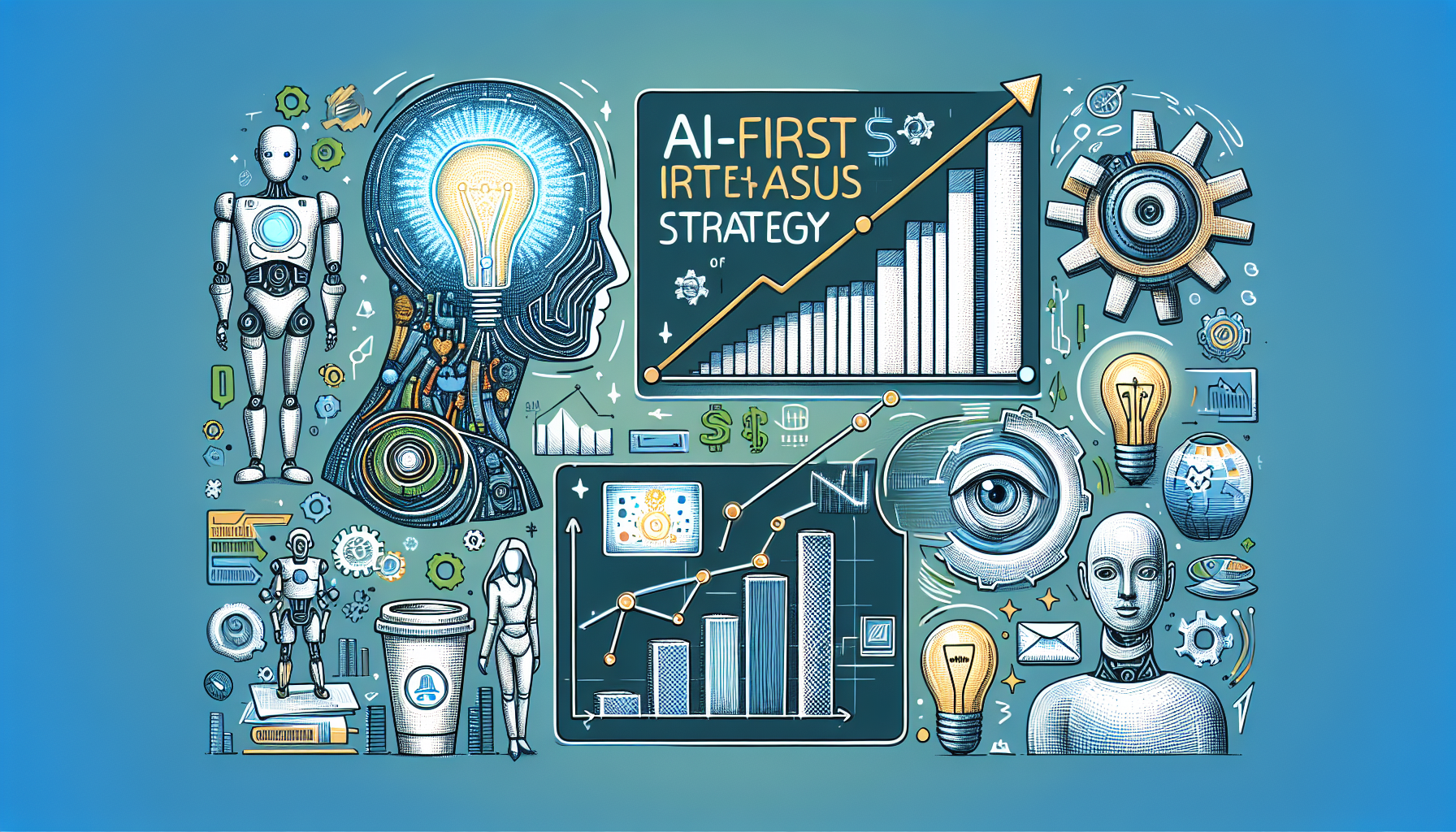Why Every Startup Should Consider an AI-First Strategy
Defining AI-First Strategy
An AI-first strategy is an approach where artificial intelligence is prioritized in the development of products, services, and business processes. This perspective goes beyond simply implementing AI tools and technologies; it positions AI as a fundamental element of the core business model. By prioritizing AI, startups can leverage data-driven insights, automation, and scalability to gain a competitive edge.
The Competitive Advantage of AI
In today’s fast-paced digital landscape, startups must differentiate themselves from established companies. An AI-first strategy enables businesses to capitalize on data for decision-making, streamline operations, and offer personalized customer experiences. This inherent adaptability allows startups to pivot quickly based on real-time feedback and market trends.
-
Data Utilization: Clean, large datasets fuel AI models. Startups often possess a smaller dataset compared to big corporations, but this can be an advantage. By focusing early on harnessing existing data, such as user interactions, feedback, and behavior patterns, startups can create tailored AI solutions that resonate with their target audience.
-
Predictive Analytics: AI can analyze historical data to identify trends and predict future behaviors. Startups can utilize predictive analytics to forecast customer needs, optimize inventory, and enhance marketing strategies, leading to increased sales and customer satisfaction.
-
Enhanced Decision-Making: AI algorithms can process and analyze data far faster than human cognition. By integrating these insights into decision-making, startups can formulate strategies based on reliable data rather than intuition, thereby reducing risks associated with gut-feeling choices.
Streamlining Operations with Automation
Operational efficiency is critical for startups aiming to grow sustainably. AI can automate various processes, thereby reducing overhead costs and freeing up human resources for more strategic tasks.
-
Customer Support: Deploying AI-powered chatbots can significantly reduce the burden on customer support teams. These smart bots can handle up to 80% of routine inquiries, improving response times and customer satisfaction, while allowing human agents to focus on complex issues.
-
Marketing Automation: AI-driven marketing tools analyze user data to tailor marketing campaigns effectively. From personalized email recommendations to targeted advertisements on social media, startups can benefit from higher engagement and conversion rates using AI analytics.
-
Supply Chain Management: Startups can utilize AI to optimize their supply chains by predicting demand fluctuations and identifying inefficiencies. This data-driven approach not only reduces costs but also enhances service delivery.
Personalization at Scale
One of the most significant advantages of implementing an AI-first strategy is the ability to offer personalized experiences at scale. Tailored customer experiences lead to higher retention and loyalty.
-
Content Recommendations: AI algorithms analyze user behavior to recommend products, services, or content personally tailored to each user. Major companies like Amazon have successfully harnessed AI to develop recommendation systems, resulting in significant increases in sales.
-
Dynamic Pricing: AI can analyze market conditions, competitor prices, and customer behavior to optimize pricing strategies dynamically. Startups can stay competitive by adjusting prices in real-time based on supply and demand.
-
User-Generated Data Feedback Loop: AI systems continuously learn from user interactions. By regularly updating their algorithms based on real-world feedback, startups can refine products, resulting in a more user-centric approach that drives long-term satisfaction.
Scalability and Flexibility
Scalability is often a critical concern for startups. Implementing an AI-first strategy allows startups to scale more rapidly and effectively without extensive additional resources.
-
Cloud Computing Integrations: AI technologies can seamlessly integrate with cloud computing platforms, enabling startups to leverage computational power without physical infrastructure constraints. This flexibility allows rapid scaling during peak business operations without significant investments.
-
Modular AI Solutions: Startups can adopt pre-built AI modules tailored to their business needs, thus allowing for incremental integration rather than a complete overhaul of existing systems. This modular approach lowers barriers to entry and accelerates deployment.
-
Rapid Product Development: Leveraging AI for agile product development helps startups iterate quickly based on user feedback and analytics, enabling the launch of innovative solutions tailored to market demands.
Challenges and Considerations
While the benefits of an AI-first strategy are substantial, they come with potential challenges that startups should consider.
-
Data Privacy Compliance: Startups must navigate the complex landscape of data privacy laws such as GDPR and CCPA. An AI-first strategy will require a solid framework for data governance to ensure compliance and maintain customer trust.
-
Technical Expertise: Implementing an AI-first strategy necessitates specialized knowledge. Startups may face resource constraints in hiring data scientists and AI engineers, which can pose a hurdle unless strategic partnerships or outsourcing arrangements are considered.
-
Mitigating Bias in AI: AI systems can inadvertently perpetuate biases if trained on biased datasets. Startups must ensure diverse datasets and monitor AI outputs to mitigate risks associated with discrimination and unfair practices.
Investment and ROI
Investing in AI can seem daunting due to the initial costs and resource allocations. However, the long-term ROI potential is substantial.
-
Increased Efficiency: Automating mundane tasks can lead to reduced operational costs through increased productivity. The savings can be reinvested into growth initiatives.
-
Higher Revenue Potential: Personalized marketing and customer interactions powered by AI can drive higher sales conversions and customer loyalty, significantly contributing to revenue growth.
-
Long-Term Viability: Startups that adopt AI early are better positioned for long-term success. By integrating AI into their value propositions, they stand to benefit from continued technological advancements and market expectations shifting toward data-driven solutions.
Conclusion
Adopting an AI-first strategy not only positions startups for immediate enhancements in efficiency, scalability, and customer engagement but also lays the groundwork for sustainable growth and success in an increasingly competitive landscape. By recognizing the potential of AI early, startups can create a resilient business model that is adaptable to changing market dynamics and consumer behaviors.


